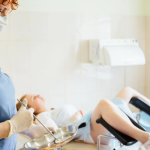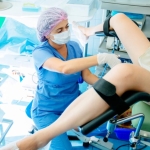Your kidneys remove extra water and waste from your blood. They form part of your urinary tract, making you produce urine and eliminating waste from your body. If you suspect something is wrong with your kidneys, it’s essential to talk to a doctor in NYC or seek local medical care as soon as possible.
Sometimes kidney problems can be an early sign of chronic kidney disease that will gradually worsen over time and ultimately lead to kidney failure. Detecting and treating kidney problems early can prevent the progression to kidney failure.
Signs of Kidney Problems
Kidney Infection
If bacteria get into your kidneys, they can become infected, potentially affecting one or both of your kidneys. It’s crucial to seek treatment for kidney infections immediately, as untreated infections can cause permanent kidney damage or spread to other parts of your body.
Kidney Pain
Pain in your sides, lower back, or upper back could indicate kidney issues. Kidney pain may stem from urinary tract infections, kidney infections, blood clots, or diseases such as polycystic kidney disease.
Kidney Stones
Kidney stones develop when there’s an imbalance of fluids and waste in the kidneys. Small stones can often be passed through urine, while larger ones may require more invasive treatments such as shockwave lithotripsy.
Blood in Urine
Seeing blood in your urine can be alarming and may signal problems with your kidneys or other parts of your urinary tract. While not always a sign of kidney disease, it is important to seek medical care for proper diagnosis.
Chronic Kidney Disease: Overview and Diagnosis
Chronic kidney disease (CKD) is a condition where kidney function gradually declines. Initially, symptoms may not appear, but as kidney function worsens, waste and fluid buildup in the body can cause problems like muscle cramps, swelling, trouble sleeping, and shortness of breath.
Diagnosing Chronic Kidney Disease
A simple blood test to measure creatinine levels can help determine kidney function, along with urine tests to check for blood or protein in the urine.
Treatment Options for Chronic Kidney Disease
Though the damage to your kidneys is usually permanent, early intervention can help prevent further damage. Treatment includes medications for managing complications, lifestyle changes, and regular monitoring by healthcare providers.
Treatment for Kidney Issues
Kidney Infection Treatment
Kidney infections are typically treated with antibiotics. Your doctor may provide broad-spectrum antibiotics initially, with adjustments based on the results of urine tests.
Kidney Stones Treatment
Smaller kidney stones are managed with fluids and pain medication. Larger stones may require shockwave lithotripsy or ureteroscopy, both of which can be performed under general anesthesia.
Managing Kidney Pain
Treatment for kidney pain depends on the underlying cause. A combination of medications, imaging tests, and possible procedures like surgery may be used to treat kidney pain effectively.
Preventing Kidney Problems
While you cannot always prevent kidney disease, there are ways to reduce your risk and maintain kidney health:
- Maintain a healthy diet: Follow a low-fat, low-salt diet, and manage your weight.
- Control blood sugar levels: Essential for those with diabetes.
- Exercise regularly: Incorporating exercise into your routine can support overall health and kidney function.
- Avoid smoking and limit alcohol consumption: These habits contribute to kidney disease progression.
Conclusion
Kidney problems can often go unnoticed in their early stages, but with proper care, most kidney conditions can be managed effectively. Regular check-ups and maintaining a healthy lifestyle can help protect your kidney health and prevent the progression to more severe conditions like chronic kidney disease or kidney failure.



